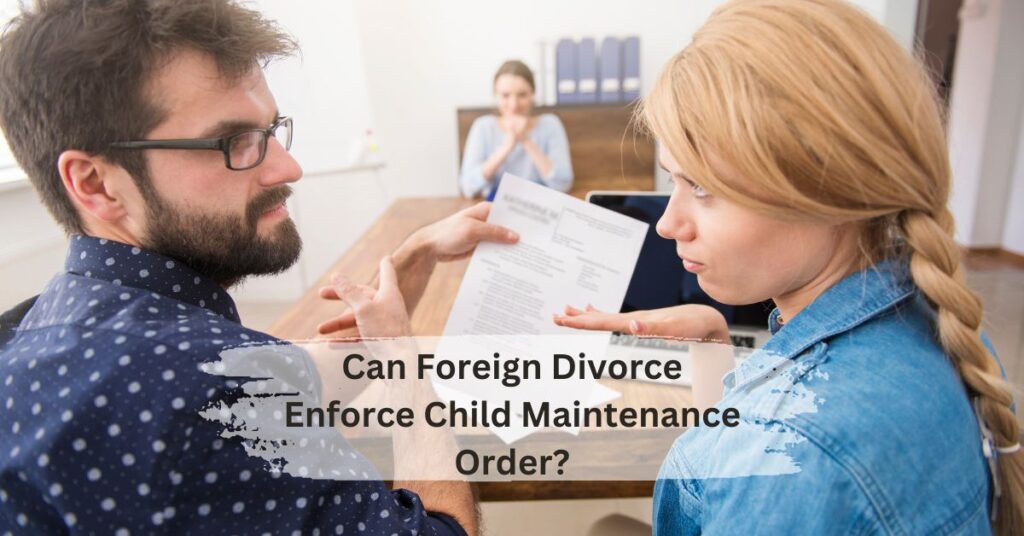In the United Kingdom, child support is a crucial aspect of family law that aims to ensure the financial well-being of children. However, as children grow older and become legal adults, questions often arise about the continuation of child support obligations. This article delves into the specifics of child support after the age of 18 in the UK, addressing common concerns and legal considerations.
Legal Framework: When Does Child Support End?
In the United Kingdom, the laws regarding child support are structured to ensure that children receive the financial support they need while they are growing up. Typically, child support obligations come to an end when a child reaches the age of 18. At this point, they are legally recognized as adults.
The Child Maintenance Service (CMS) is the government body responsible for managing child maintenance arrangements. According to CMS guidelines, child support generally stops when the child turns 18 unless certain conditions apply.
Full-Time Education or Training
One significant exception to the rule is if the child is still in full-time education or vocational training beyond the age of 18. In such cases, child support can continue until the completion of their course or training. This extension acknowledges that many young adults are still financially dependent on their parents while pursuing higher education or vocational qualifications.
Maximum Age for Child Maintenance
The maximum age up to which child maintenance can be paid in the UK is typically 20 years old. This means that if a child is in full-time education or vocational training, parents may be required to continue providing financial support until the child reaches the age of 20. This provision aims to support young adults in their educational endeavors and smooth their transition into independence.
Legal Obligations and Responsibilities
Parents need to understand their legal obligations regarding child support. Once a child reaches 18 and they are no longer in full-time education or training, parents are generally no longer obligated to pay child maintenance. However, it’s crucial to review individual circumstances and seek advice if there are uncertainties or special considerations.
Enforcement and Compliance
The CMS oversees the enforcement and compliance of child maintenance payments. If there are disputes or issues regarding child support payments, the CMS can intervene and assist to ensure that children receive the financial support they are entitled to.
Exceptions: Extended Support Beyond Age 18
While child support obligations generally cease when a child turns 18, there are important exceptions that allow for extended financial support under specific circumstances. These exceptions primarily focus on supporting a child’s education, and training, or if the child has disabilities that prevent them from supporting themselves independently.
1. Full-Time Education or Training
If a child continues their education or vocational training beyond the age of 18, parents may be required to continue providing financial support until the completion of the course or training. The Child Maintenance Service (CMS) recognizes the importance of supporting children through their educational endeavors and ensures that parents fulfill their financial responsibilities during this period.
Continuing child maintenance during education or training aims to assist with the costs associated with living away from home, course fees, textbooks, and other educational expenses. This extended support helps ensure that children can pursue their educational goals without financial strain.
2. Disability or Special Needs
In cases where a child has a disability or special needs that prevent them from supporting themselves after turning 18, child maintenance can continue indefinitely. This exception recognizes the ongoing care and support required for children with disabilities, whose independence may be limited due to their condition.
The Child Maintenance Service assesses each case individually to determine the appropriate level of support based on the child’s needs and circumstances. Parents are encouraged to provide necessary assistance to ensure the well-being and quality of life for their children with disabilities.
3. Court Orders or Agreements
In certain situations, parents may have court orders or private agreements that extend child maintenance beyond age 18. These arrangements are legally binding and outline specific terms and conditions for continued financial support. Parents need to adhere to court orders or agreements to avoid legal complications and ensure ongoing support for their children as outlined by the terms. Read our previously published article on Can I calculate the Child Maintenance Fee with the Calculator?
Understanding the Importance of Extended Support

Extended child maintenance beyond age 18 reflects the commitment of parents to their children’s future and well-being. Supporting education, training, or addressing special needs ensures that children have the necessary resources to thrive and achieve their potential.
For parents navigating these exceptions, it’s advisable to seek legal advice or guidance from family law professionals. Legal experts can provide clarity on rights, responsibilities, and the process of transitioning child support arrangements as children reach adulthood.
By understanding these exceptions and the legal framework surrounding child maintenance, parents can effectively plan and provide for their children’s future beyond the age of 18.
Maximum Age for Child Maintenance
| Child’s Circumstance | Maximum Age for Child Maintenance |
|---|---|
| In full-time education or training | Up to age 20 |
| Disabled and unable to support self | Indefinite (case-dependent) |
Financial Considerations for Child Maintenance

Parents should be aware of their financial responsibilities and the implications of child support arrangements. While child maintenance usually ends at 18 or when education/training concludes, parents may need to plan for this transition. It’s essential to understand the financial impact and prepare accordingly, ensuring a smooth transition for both parties involved.
When a child reaches the age of 18 or completes their full-time education or training (typically by age 20), child maintenance payments generally cease according to UK law. This transition can have significant financial implications for both parents and the child.
Budgeting for Transition
Parents paying child maintenance should anticipate the cessation of these payments and adjust their financial planning accordingly. It’s important to assess how this change will impact your overall budget and expenses. Consider reallocating funds previously allocated for child maintenance towards other financial priorities, such as savings, investments, or personal expenses.
Child’s Financial Independence
For the child, reaching adulthood often comes with newfound financial independence. As child maintenance ends, young adults are encouraged to take on more responsibility for their financial needs. This could include covering living expenses, educational costs, or other personal expenditures. Parents can support their children’s financial literacy by helping them create a budget and understand basic financial management principles.
Savings for Educational Costs
If your child is continuing their education beyond the age of 18, such as pursuing a university degree, it’s essential to plan for these educational expenses. University tuition fees, accommodation costs, and living expenses can be substantial. Parents may consider setting aside savings or establishing an educational fund to support their child’s higher education aspirations.
Consideration of Special Circumstances
In cases where a child has disabilities or special needs, financial planning becomes even more critical. Depending on the severity of the disability, parents may need to explore long-term financial arrangements to ensure ongoing support and care beyond the age of 18. Seeking advice from financial advisors or specialists in disability planning can provide valuable insights and peace of mind.
Open Communication
Throughout this financial transition, maintaining open communication with your child is essential. Discussing financial matters openly and honestly can empower young adults to take ownership of their financial future. Encourage them to seek employment or explore financial aid options to supplement their income and cover expenses independently.
Seeking Professional Advice
Navigating the financial aspects of child maintenance after age 18 can be challenging. Parents and children alike may benefit from seeking professional advice from financial advisors or legal experts specializing in family law. These professionals can offer tailored guidance based on individual circumstances and ensure that financial arrangements align with legal requirements.
Impact on Parental Responsibilities
As children reach adulthood, parental roles evolve, and financial support often becomes less formalized. Although child support obligations may end, parents may continue to provide assistance voluntarily based on individual family dynamics and circumstances. Open communication and mutual understanding are key to navigating this transition effectively.
Legal Advice and Guidance
Navigating child support laws can be complex, especially when addressing changes as children grow older. Seeking legal advice or guidance from family law professionals can provide clarity and ensure compliance with legal obligations. Consulting with experts can help parents understand their rights and responsibilities under the law.
Navigating the complexities of child maintenance laws in the UK can be daunting, especially as children reach adulthood and transition out of formal child support arrangements. Seeking legal advice and guidance can be invaluable in understanding your rights and responsibilities as a parent.
Importance of Legal Advice
Legal advice is essential for parents navigating child maintenance after a child turns 18. A qualified family law solicitor can provide personalized guidance based on your specific circumstances. They can help interpret the law, clarify any uncertainties, and offer practical solutions tailored to your family’s needs.
Understanding Your Obligations
A family law professional can explain your legal obligations regarding child maintenance post-18. They can advise you on when and how your financial responsibilities may end, taking into account factors such as the child’s education, training, or disability status. Understanding these obligations is crucial for making informed decisions.
Resolving Disputes
In some cases, disputes may arise between parents regarding child maintenance after the age of 18. Legal experts can assist in resolving these disputes through negotiation, mediation, or legal proceedings if necessary. They can advocate for your interests and ensure fair outcomes that prioritize the well-being of the child.
Financial Planning
Legal advisors can help parents plan for the financial transition as child maintenance obligations come to an end. They can offer insights into budgeting, financial management, and future planning to ensure a smooth transition for both parents and children. This proactive approach can alleviate financial stress and promote financial stability.
Mediation Services
Mediation services provided by family law professionals can facilitate constructive communication between parents regarding post-18 child maintenance. Mediators act as impartial third parties, guiding discussions and helping parents reach mutually acceptable agreements outside of court. Mediation can be a cost-effective and less adversarial alternative to litigation.
Compliance with Legal Requirements
Staying compliant with legal requirements is crucial to avoid potential legal consequences. Legal advisors can ensure that child maintenance arrangements adhere to statutory guidelines and court orders, protecting both parents’ rights and the child’s welfare. They can also assist in modifying existing arrangements if circumstances change.
Access to Support Networks
Legal professionals often have access to broader support networks, including financial advisors, counselors, and community resources. They can connect parents with additional support services that may be beneficial during this transitional period, promoting holistic well-being for families.
Peace of Mind
Ultimately, seeking legal advice and guidance for child maintenance cover offers peace of mind to parents. Knowing your rights, understanding legal processes, and having a clear plan can reduce stress and uncertainty associated with post-18 child support. Legal advisors can empower parents to make informed decisions in the best interests of their families.
Conclusion
In summary, child support obligations in the UK typically end when a child reaches 18 years of age, or upon completion of full-time education or training up to the age of 20. However, there are exceptions, such as when a child has disabilities or continues education beyond 20, which may require extended financial support. Parents need to be aware of these legal parameters and prepare for the transition to adult financial responsibilities.







